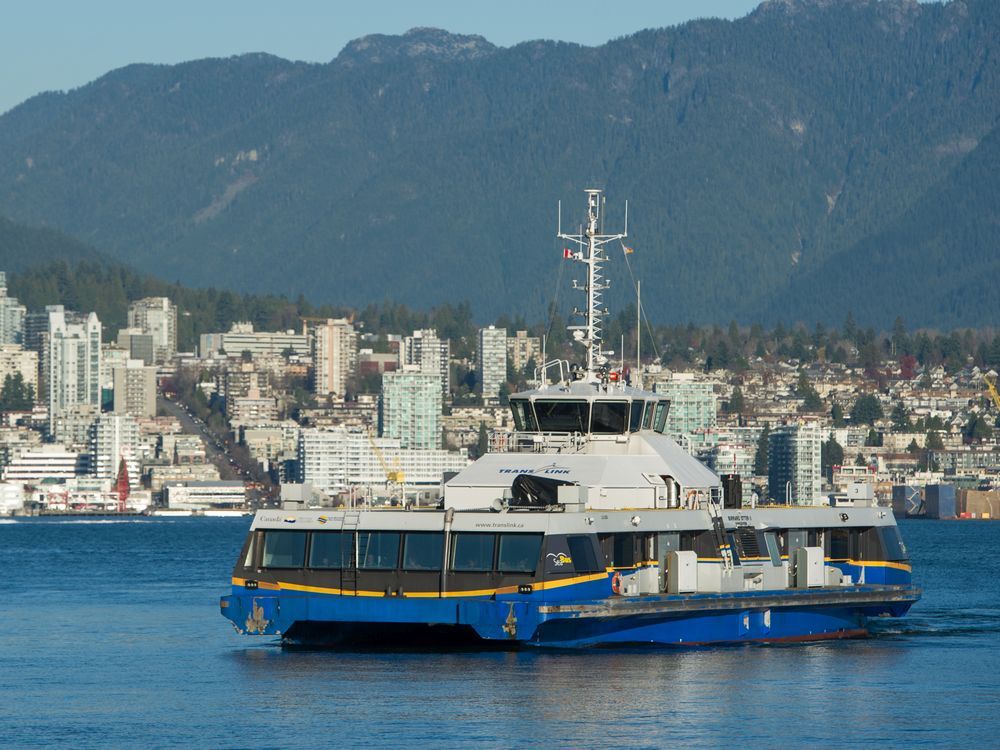Metro Vancouver bus, SeaBus shutdown averted as tentative deal reached

Credit to Author: Jennifer Saltman| Date: Wed, 27 Nov 2019 08:51:45 +0000
A full scale bus and SeaBus shutdown has been averted as a tentative deal was reached early Wednesday between the union representing 5,000 bus and SeaBus workers and Coast Mountain Bus Company.
Details of the agreement will be made available following ratification votes happening in the coming days.
“Transit workers stood up for one another and fought hard to get a fair contract,” said Jerry Dias, Unifor National President. “Total service disruption was a last resort, so our members are relieved that they can return to serving the public.”
Unifor transit workers announce a tentative agreement with Coast Mountain Bus Company #transitstrike pic.twitter.com/EsMUb41kV9
“I would like to commend both parties for working together and finding common ground to end this difficult chapter for our customers, employees, and the company,” said Michael McDaniel, President of Coast Mountain Bus Company.
“The agreement is still to go through a ratification process, which we expect will take several weeks.”
The two sides met Tuesday for the first time since contract talks broke off on Nov. 14.
The bargaining committee met with Dias, his assistant Chris MacDonald and the Unifor western regional director Gavin McGarrigle on Tuesday morning before bargaining resumed in the afternoon.
Dias said the union hoped to have “meaningful negotiations” with the objective of reaching a tentative deal.
“I’m here to settle, I’m not here to fight because anybody can fight, so it’s really about finding a collective agreement that everyone can live with,” said Dias.
The shutdown would have affected hundreds of thousands in Metro Vancouver. More than 250,000 daily transit journeys — a complete transit trip that could include a number of transfers — use only buses and about 18,000 include a ride on the SeaBus. More than 11,000 people use the SeaBus on a typical fall workday, almost half of whom are North Shore residents.
There are more than 500,000 boardings on the SkyTrain system each day, and more than half of those use bus or SeaBus to get to or from the train.
Bus drivers had refused to wear uniforms every day since Nov. 1 and refused to work overtime for four days. Maintenance workers had been refusing OT since Nov. 1. This action resulted in hundreds of trip cancellations for buses and the SeaBus.
Passengers at Marine Drive Station as delays and trip cancellations persisted across Metro Vancouver’s bus system last week
Businesses in Metro were concerned about how the looming bus and SeaBus shutdown would have affected them.
“The potential of a system-wide shutdown is very worrisome for our region’s business community. We are living in times of economic uncertainty and a widespread transit disruption in the Lower Mainland could compound the negative impact on our region’s economy,” said Bridgitte Anderson, president and CEO of the Greater Vancouver Board of Trade, in a news release. “For many small businesses, such a significant transit disruption could make it difficult to keep the doors open if employees are unable to make it to and from work.”
With the busy holiday season around the corner, the Canadian Federation of Independent Business said public transit disruptions could encourage people to shop online and hurt the bottom line of small businesses, and employees could have trouble getting to work.
“It is in the best interest for small businesses, employees, customers and the local economy that all parties resolve outstanding issues before Wednesday,” said policy analyst Muriel Protzer.
In the transit dispute, wages are a major sticking point, along with working conditions for bus drivers.
Coast Mountain had offered a 12.2 per cent pay increase for skilled trades over four years, and a 9.6 per cent pay increase for transit operators over the same period. Unifor had sought an increase of 15.2 per cent over four years for bus drivers and 16.7 per cent over four years for maintenance workers, and parity with drivers in other jurisdictions and maintenance workers within the transit authority.
Under the current contract, conventional bus drivers start at $22.83 an hour during a 30-day training period, then go from $24.46 an hour to $32.61 an hour after 24 months of employment.
On the issue of working conditions for bus drivers, the company offered, for the first time, guaranteed recovery time. Drivers would receive 40 minutes of recovery time per shift and be paid double for every minute of the recovery time missed because of traffic.
“We need to find out how we’re going to compress the gap. We need to nail down some of those working conditions. This isn’t very complicated, and we have all day — we have until midnight,” said Dias. “I’ve put together much more complicated collective agreements than this in a much shorter period of time. So, it’s all about desires and it it’s all about a will to find a settlement.”
Bus and SeaBus staff aren’t the only transit workers bargaining.
SkyTrain attendants, control operators, administration, maintenance and technical staff took a strike vote last week and 96.8 per cent of workers voted to strike. However, bargaining with the B.C. Rapid Transit Company took place over the weekend and mediated discussions began Monday.
The main concerns are wages, staffing levels, forced OT and sick leave. The company has offered a two per cent wage increase per year, but the union hasn’t divulged what it’s seeking.
Wages for SkyTrain workers vary based on a person’s duties. On the low end, a receptionist or data-entry clerk makes $24.95 an hour, and a customer service attendant $26.43, while an escalator/elevator technician, the highest-paid tradesperson, makes $49.94 an hour.